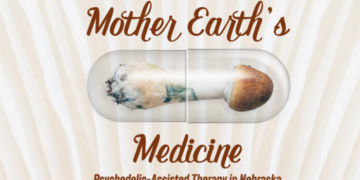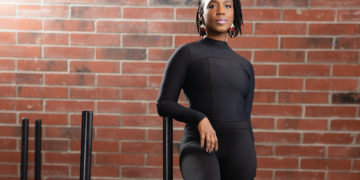Listen to this article here. Audio Provided by Radio Talking Book Service.
“Rock! Rock! Rock!” was a cautionary cry that Jacob Weasel heard during one of the toughest, but most rewarding, challenges of his life. The Omaha-raised surgeon was attached to a mountain by ropes, carrying at least 20 pounds of gear on his back, when he heard these deadly words a split second before a stone about the size of a racquetball hit him in the chest. Although bruised, he carried forth with his mission, and within 24 hours, was standing atop the 29,032-foot tall peak known as Mount Everest.
It was an ambitious feat accomplished by a man with much ambition, but whose biggest goal is living for something bigger than himself. This is a philosophy that he has long held, even mentioning it in his 2005 commencement address to his class at Papillion-La Vista South High. The Omaha-raised, enrolled member of South Dakota’s Cheyenne River Sioux Tribe has faced challenges ranging from raising a young family while attending college to being hit by avalanches on mountains. With those obstacles, though, come important rewards, such as having three children who are his pride and joy and becoming one of the first Native Americans to summit the world’s highest mountain.
“It’s kind of my personality,” Weasel said. “I had never run a race before, but then I decided to run a marathon. I have no desire to run another marathon, but I have a desire to run the Marathon des Sables (the world’s toughest marathon) in the Saharan Desert in Morocco.”
His interest in mountain climbing was piqued when he heard that a professor whom he’d befriended at Creighton, Tracy Leavelle, had attempted to summit Mount Rainier. Weasel was particularly interested in a story Leavelle told about a professional football player on his team who considered mountaineering the hardest thing he had attempted.
“I always thought when I had the time and resources, that was something I’d like to do,” Weasel said.
It first took time. Weasel graduated with degrees in theology and philosophy from Creighton University and then with his medical degree from the University of Nebraska Medical Center, where he was the only Native American in his class. The emergency and trauma surgeon at Monument Health Facility in Rapid City, South Dakota, had not spent much time hiking or in the mountains before he enrolled in a mountaineering class in preparation of climbing Mount Rainier. That class taught him the basic skills, such as ice ax techniques and traveling in a rope team.
He then summited the tallest mountain in Washington state, and one of the highest mountains in the United States, falling in love with the sport of mountaineering in the process.
“I loved the aspect of learning a new skill,” Weasel said. “I have found that…it’s a microcosm of life, because you are going to encounter hard times, you are going to want to give up, turn back. If you put one foot in front of the other, you will go on to reach the top.”
Weasel said the mental aspect is the hardest part about mountaineering, a statement echoed by many extreme athletes. In fact, his journey to the summit of the world’s tallest mountain was accompanied by visions.
“I was hearing voices that I thought were my friends who were trailing behind me,” Weasel said of his climb to the top of the world. “Then on the way down from the summit, I had visual hallucinations from the rocky outcroppings of the faces of my wife and children.”
The philosopher in him believes he saw and heard the encouragement of loved ones; the practicing medical doctor thinks there may have been some form of hypoxic brain injury or cerebral edema from a lack of oxygen. The man named Dr. Jacob Weasel just thought, “Huh, that’s interesting.”
“The honest truth is that you’re so engrossed in the moment that you aren’t thinking about all those other things,” Weasel said. “That’s one of the things I love about mountaineering. I also feel that when I’m in an operating room.”
There is at least one other thing he thinks of in preparation of climbing a mountain, and that is the plight of others. Weasel created The Wopila Project, a nonprofit to cultivate a spirit of gratitude and encourage generosity. The two projects he is working on include funding a playground for a Native American housing community in Rapid City, South Dakota, and a women’s health clinic in rural Nepal.
“What I wanted to do through climbing Everest was serve as an example to young Native people, and young people everywhere, that no matter what it is they want in life, they are equally capable to achieve their dreams so long as they don’t give up,” Weasel reflected.
Visit wopilaproject.com to give or learn more about the nonprofit.
This article originally appeared in the January/February 2024 issue of Omaha Magazine. To subscribe, click here.













